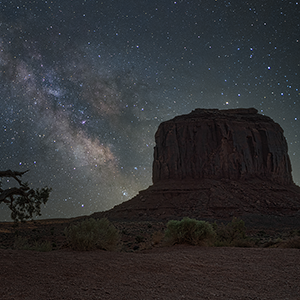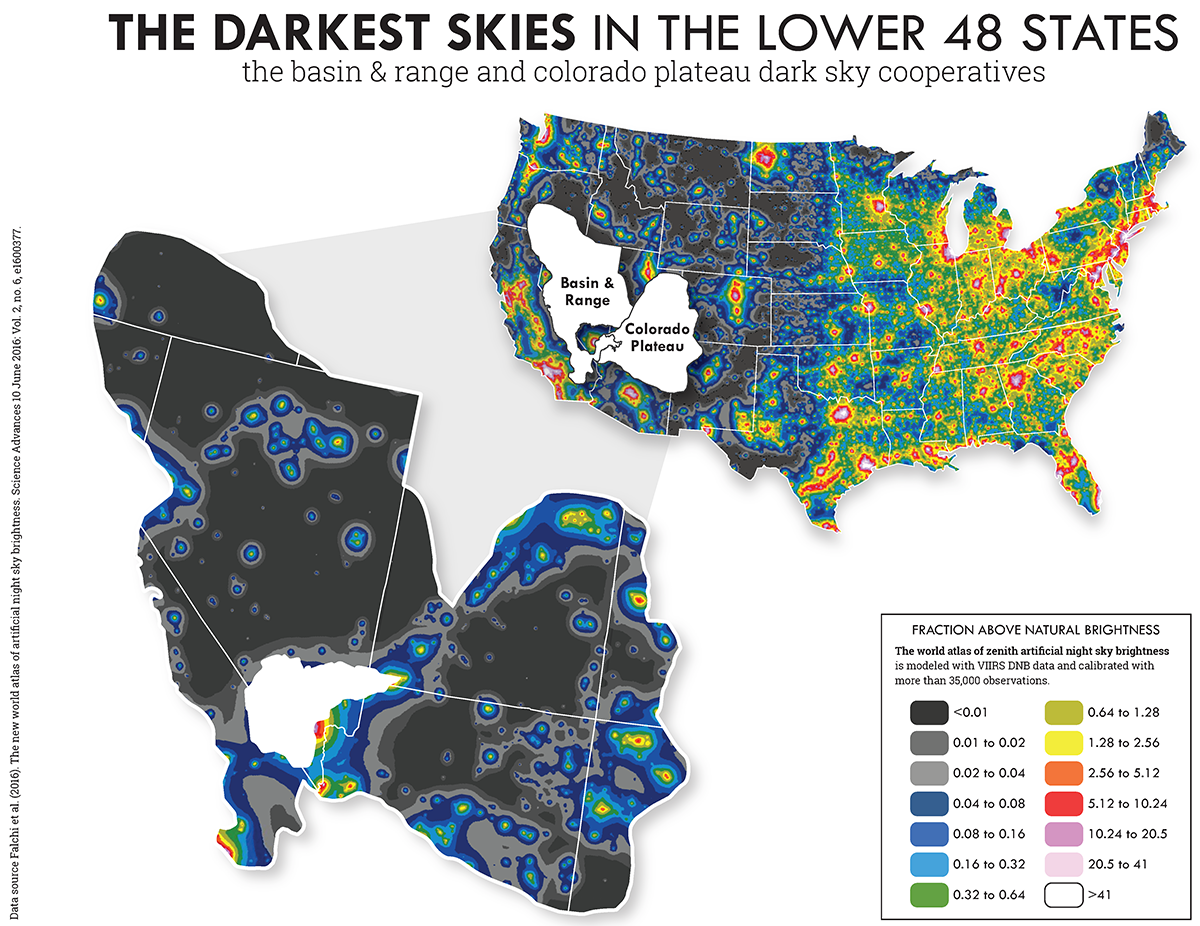
The dark, starry skies over Monument Valley
are some of the darkest in North America.
The Institute of Outdoor Recreation and Tourism partners with the National Park Service and becomes the home of western dark sky cooperatives
The night skies across much of the American West are some of the darkest in North America. However, opportunities to see deep into the night sky are being threatened by light pollution. Through concerted efforts to conserve dark night skies, the American West can continue to provide opportunities to gaze up and ponder the vastness of not only our galaxy, but the thousands of galaxies that we are just beginning to learn about.
To preserve access for public inspiration, education, and enjoyment of western night skies, the Institute of Outdoor Recreation and Tourism at Utah State University is partnering up with the National Park Service and becoming the home of the Colorado Plateau and Basin and Range Dark Sky Cooperatives. Each cooperative brings together local, state, and federal land management agencies with tribal partners, businesses, and nonprofits to celebrate the cosmos, minimize the impact of outdoor lighting, protect and restore natural darkness, and promotes astronomy-based outdoor recreation and tourism. The new partnership capitalizes on the management and policy leadership of the National Park Service and the educational and training leadership of the Institute of Outdoor Recreation and Tourism.
The work of the Colorado Plateau and Basin and Range Dark Sky Cooperatives spans four objectives:
- Coordination & Network Building. The Cooperatives coordinate efforts, communicate effectively, share resources and information, and provide mutual support to the larger network of dark sky advocates throughout their respective regions.
- Outreach & Education. The Cooperatives assist in the creation, promotion, facilitation, and improvement of the public’s understanding of the benefits and implications of night sky conservation.
- Tools, Guides, & Resources. The Cooperatives support, create, and share actionable tools, guides, and resources that support landscape scale approaches to dark sky conservation.
- Support & Technical Assistance. The Cooperatives provide direct support and technical assistance to build the knowledge and capacity of stakeholders relative to their own dark sky conservation goals and activities.
If you would like to learn more about either the Colorado Plateau or Basin and Range Dark Sky Cooperative, please visit cpdarkskies.org or brdarkskies.org.
Contact:
Lisa Stoner
Assistant Director of Outreach and Education
Institute of Outdoor Recreation and Tourism
S. J. & Jessie E. Quinney College of Natural Resources
lisa.stoner@usu.edu

